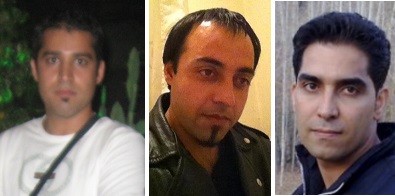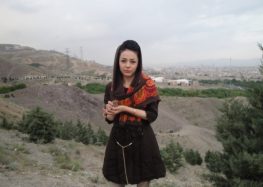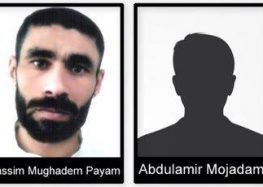No Information About Christian Converts, Continued Pressure on Members of Evangelical Churches

Plainclothes forces raided the home of Hamidreza Ghanbari during a worship session by Christian converts, and arrested Mohammad Reza Farid, Saeed Safi, and Hamid Reza Ghadiri.
One month after the arrest of three Christian converts in Isfahan, their conditions remain unknown and there is no news about their fate. According to reports from the International Campaign for Human Rights in Iran’s sources, since the May 29 arrests of Mohammad Reza Farid, Saeed Safi, and Hamid Reza Ghadiri, their families have been unable to obtain any information about their conditions, and the judicial and police authorities have not provided them with any information about the reasons for their arrests, their detention conditions, or their charges.
Plainclothes forces raided the home of Hamidreza Ghanbari during a worship session by Christian converts, and arrested Mohammad Reza Farid, Saeed Safi, and Hamid Reza Ghadiri.
According to reports, the forces treated those present at the worship session violently, and confiscated identification cards and information about the group before arresting the three men. During recent weeks, security forces have contacted a number of those present and asked them questions about the three detained men, threatening them with arrest if they refuse to answer questions.
A local source told the Campaign that the families’ efforts to pursue the cases at judicial, security, and police centers have been fruitless. Mohammad Reza Farid and Saeed Safi are Afghan Christian converts and managed the “Our Salvation” website, which was blocked by the Iranian cyber police.
Pressure on Christian converts and Evangelical Christians has increased over the recent months again, and in addition to arrests, Persian-language churches have also been closed down under pressure from the Intelligence Ministry. On May 26, security forces and plainclothes agents arrested Pastor Robert Asseriyan, a leader from Tehran’s Assemblies of God Church, during a worship ceremony. The Assemblies of God Church, Tehran’s oldest Persian-language church, was also shut down under pressure by intelligence forces.
In an earlier interview, Mansour Borji, a spokesperson for the Article 18 initiative of the United Council of Iranian Churches (Hamgaam) and an Iranian Christians rights defender, explained why the church and its leaders have been targeted for harassment. “It’s because this church’s services are held in the Persian language and they don’t want non-Christians to participate in them. They are afraid that the number of Christian converts will grow. Of course, before the [1979] Revolution, this Church held its services in Persian, because many Christians are not well versed in the Armenian language. After the Revolution, there was pressure at different times to shut down the Persian-language churches, and the pressure has intensified over recent years. Most Persian-language churches have been slowly closed down over recent years. Churches in Mashhad, Western and Eastern Azerbaijan, Arak, Shiraz, and Ahvaz were all shut down. This church of the Assemblies of God has the largest congregation of all Persian-language churches and is more than half a century old.”
On May 20, the US State Department published its International Religious Freedom Report for 2012, indicating that the rights of religious minorities are most violated in Iran, Egypt, and Venezuela. Several other countries were named as countries in which the charges of “blasphemy” and “apostasy” are used in a discriminatory fashion. The US State Department referred to the hundreds of arrests of Iranian Christian converts over the past year. “Muslim converts to Christianity faced harassment, arrest, and sentencing. Many arrests took place during police raids on religious gatherings, when the government also confiscated religious property,” the report stated.
Pursuit, persecution, intimidation, arrests, and heavy judicial sentences for Christians, specially for Persian-speaking Christian converts, have been ongoing activities of the Islamic Republic of Iran for many years, carried out by official and unofficial forces of the regime, repeatedly criticized by religious and human rights organizations.



